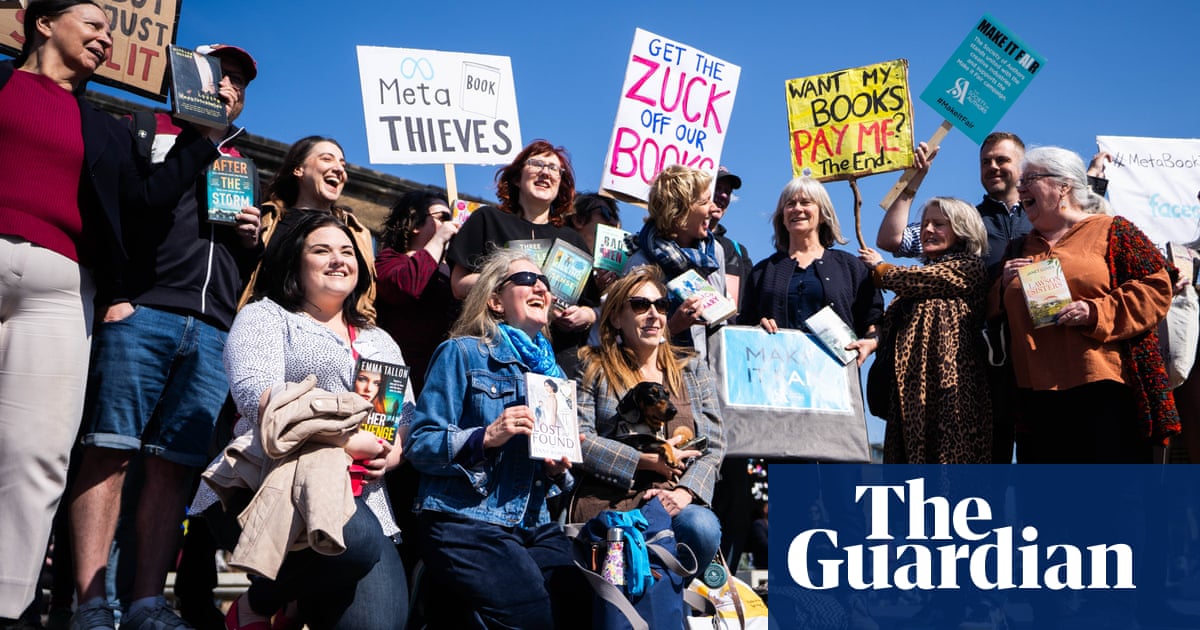The authors taking on Mark Zuckerberg – podcast
TruthLens AI Analysis
The article sheds light on a protest against Meta, the parent company of Facebook, Instagram, and WhatsApp, focusing on its alleged misuse of copyrighted material to train its generative AI models. This situation reflects a growing concern among authors regarding copyright infringement and the broader implications for creative industries. The responses from authors and commentators highlight the tension between innovation and intellectual property rights.
Purpose of the Article
The article aims to raise awareness about the ongoing conflict between authors and large tech companies like Meta. By featuring voices from the protest, it seeks to emphasize the need for stronger copyright protections in the digital age. The mention of the UK government's role suggests a call to action for legislative measures to protect creators.
Public Perception
The narrative is likely designed to evoke sympathy for authors and concern over the potential exploitation of their work. By framing the issue as a threat to creative industries, it may influence public opinion against tech giants like Meta, reinforcing the idea that they prioritize profit over the rights of individual creators.
Potential Omissions
While the article effectively highlights the authors' grievances, it may downplay the arguments made by Meta regarding fair use and innovation. This one-sided portrayal might obscure the complexities of the debate and the potential benefits that generative AI could bring to society.
Manipulative Elements
The article leans toward a narrative that portrays Meta in a negative light. By emphasizing the emotional reactions of authors and the potential consequences of copyright infringement, it could be considered somewhat manipulative. The language used evokes a sense of urgency and injustice, which may sway reader opinions.
Truthfulness of the Content
The reporting appears to be factual, citing real events and individuals involved in the protest and legal actions against Meta. However, the interpretation of these events leans toward a particular narrative, which may affect the perceived objectivity of the article.
Societal Implications
The ongoing dispute over copyright and AI could have profound implications for the creative economy. If authors succeed in their lawsuits, it may lead to stricter regulations on AI training data, potentially stifling innovation. Conversely, if Meta prevails, it could embolden tech companies to exploit copyrighted works without adequate compensation to creators.
Supportive Communities
The article is likely to resonate with writers, artists, and advocates for copyright reform. These communities are concerned about the implications of AI on creative expression and are likely to support efforts to protect intellectual property rights.
Market Impact
The news could influence stock prices of companies involved in the tech sector, particularly those focused on AI. If Meta's legal troubles escalate, it might lead to investor concerns about the company's future, potentially affecting its stock performance.
Global Significance
This issue intersects with broader discussions about technology, copyright, and the economy. The increasing role of AI in creative fields raises questions about the future of work and the balance of power between creators and tech companies.
AI Involvement in the Article
It’s plausible that AI tools were utilized in crafting the article, particularly for data analysis or language generation. However, the emotional tone and advocacy for authors suggest a human editorial influence aimed at mobilizing support for the cause.
Conclusion
Overall, the article serves to galvanize public support for authors facing copyright challenges against a tech giant. While it presents factual events, its framing and emotional appeals may lead to a biased interpretation of the ongoing disputes. The reliability is grounded in factual reporting, but the narrative choices indicate a clear agenda.
